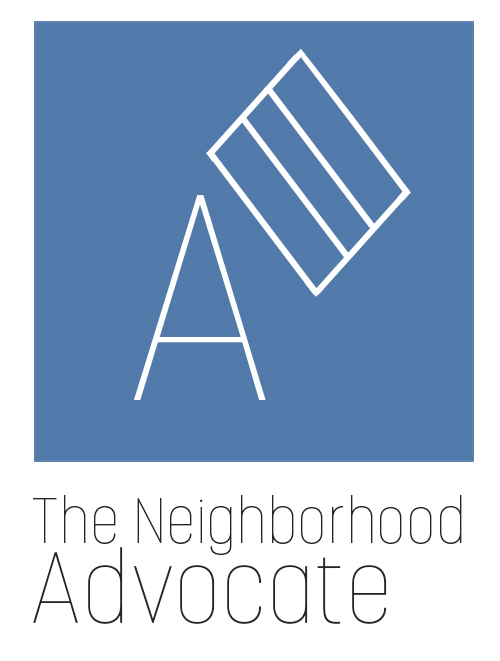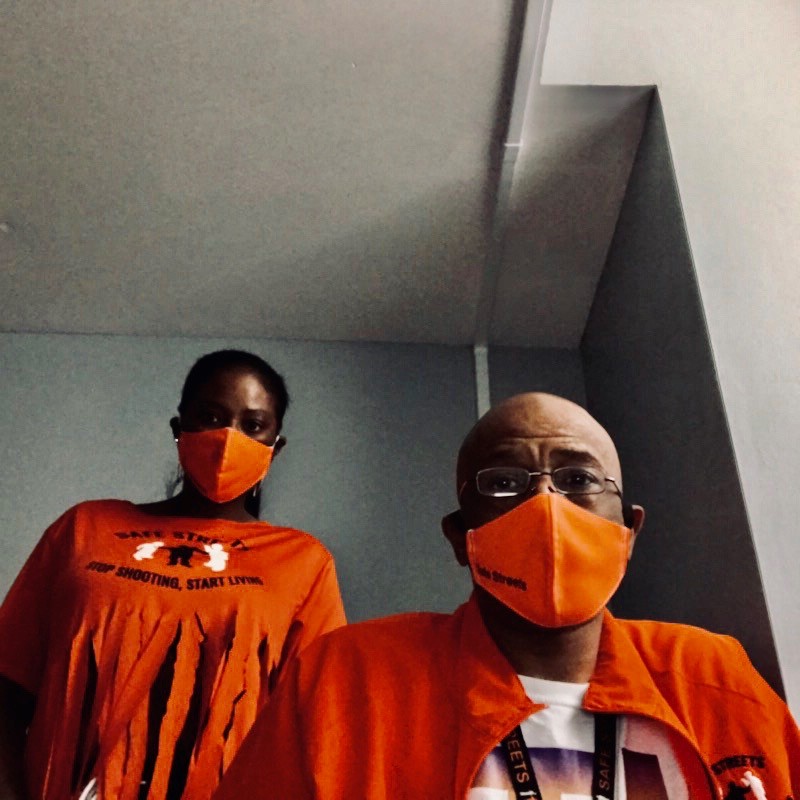
Neighborly outreach during the COVID-19 pandemic is strengthening bonds between some Baltimore City Safe Streets workers and the families they serve.
Safe Streets is an evidence-based public health approach to reducing shootings and homicides in Baltimore City.
“We mediate a lot of small disputes — little things that can become bigger beefs that involve guns,” said Kia Colson, a member of the Youth Advocate Programs (YAP), Inc. Safe Streets team. Kia grew up in Sandtown, part of the Penn North neighborhood where the YAP Safe Streets team works.
“We don’t just mediate conflict; we try to change lives. We want our youth to be the greatest they can be,” Kia said. “We also support their families.
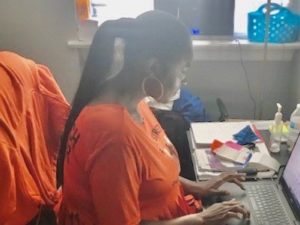
Better known for its work providing community-based alternatives to youth incarceration and out-of-home placement, YAP became one of the city’s non-profit Safe Streets partners a year and a half ago. YAP has relationships with employers, GED and vocational prep programs, behavioral health services, and other resources that the Penn North Safe Streets team uses as tools in their work to present positive options to neighborhood youth and families.
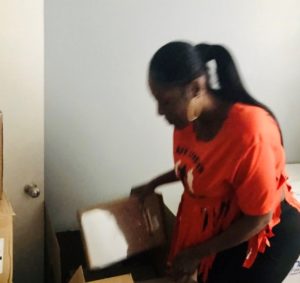
Since the onset of the pandemic, Kia said the team has been adding new resources to their toolkit to demonstrate their concern for families’ overall wellbeing. Like their fellow Safe Streets workers in other neighborhoods, the YAP team distributes face masks. They also hand out cleaning supplies along with donated food from neighborhood pantries and produce from nearby urban farms.
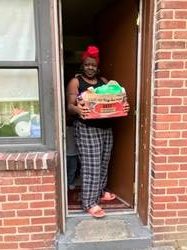
“A lot of families are suffering. We’re giving out food baskets and distributing household supplies and things like that to make them comfortable at this time. Anything we can do to give them a little relief, we’re doing,” Kia said. “People are so grateful and happy. Change doesn’t come over night; it comes from seeing what change looks like and wanting it. Any way I can help that happen, I’m down for it.”
Baltimore Safe Streets team members are formerly justice-involved individuals, which lends to their credibility and ability to establish relationships and build rapport to change behaviors and norms of people with similar backgrounds.
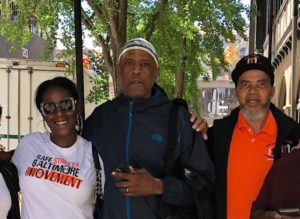
“I was one of those people who would do things to hurt myself and make the neighborhood terrible,” Kia said. “I’m just trying to give back – to show our future [generation] that there’s another way of living.”
Kia was one of the first members of the YAP Penn North Safe Streets team. She said it wasn’t easy at first, talking about safe choices to people, many of whom knew her past, which included being in and out of jail. Over time, as people saw that her transformation and concern for theirs were real, she began building trust and strengthening her relationships in the community. Since the onset of the pandemic, Kia has been seeing new signs that her work is making a difference.
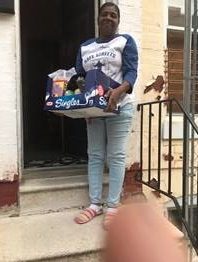
“I know we’re making a difference when the people come up and say thank you for the small things, and when you see how much those little things mean, that shows right there that there’s change,” she said. “That’s where it starts. The little things turn to big things that change communities.”
She adds that there haven’t been any shootings in the neighborhood for at least three months.


